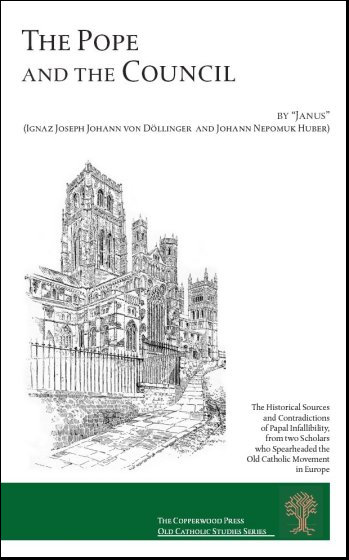The Pope and the Council

People regularly ask me, "How can you be a Catholic and be against the Pope?" It's an odd question but an understandable one. I am not against "the Pope," though I am very suspicious of idealists like John Paul II. (Irrespective of his nickname "The Grand Inquistor," I am much more at ease with pragmatist Benedict XVI.) What I am against is the whole concept of a Papacy that has evolved to give all authority within a global, billion-member church to one man, with the clear implication (if not always explicit statement) of infallibility. I am against the concept for a simple reason: It is a single point of failure for the entire Roman Catholic Church.
Read enough history of the Roman Catholic Church from non-Church sources and you'll soon see what I mean. The early Church had a distributed system of government based on overseers ("bishops") in larger cities, who settled disputes by meeting periodically and hashing them out as a group. What we call "the Papacy" was originally nothing more than the office of the bishop supervising the Church in the city of Rome, and was a very different creature until well after the Roman Empire adopted Catholicism as its state religion in 313. Several of the earliest Popes, in fact, may not even exist; contemporary records are so poor that we may never really know, and the lesson we can take from them is that the Bishop of Rome was not considered anything special or different from any other bishop in any other city of that time. Power corrupted the bishops of Rome, who at first were considered (given Rome's status as the center of the Empire) "first among equals" by other bishops but not in any position of authority over them. The downward spiral of the Papacy through corruption and ultimately into chaos continued, hitting a low point around 1410, when there were three different people claiming to be Pope, all of them scoundrels who would probably be doing life terms if they lived today. (One of them was in fact a highwayman/pirate who was said not even to have believed in God.) We no longer elect pirates to the Papacy, but we have not reversed the sad situation that the Church is now an appendage of the Pope, and bad decisions made by one man without consultation can seriously alter the Catholic Faith.
How this happened is a fiendishly complex and interesting (if perhaps depressing) business, and it took a lot of reading to get the whole story from enough different viewpoints to feel like I had something like objective history in hand. Several of the secular histories that I've read are decidedly polemic; as interesting as De Rosa's Vicars of Christ may be, its author is clearly grinding an axe the size of Sardinia. Chamberlin's The Bad Popes is better and much more objective, but is more biography than history, and does not speak in detail of the evolution of the institution of the papacy itself. I didn't find a book that really answered my questions until I bought a copy of The Pope and the Council, published in 1869, just before the opening of the First Vatican Council. Pope Pius IX had made no secret of the fact that he intended to declare Papal Infallibility an article of faith. Two Roman Catholic theologians wrote and pseudonymously published (as "Janus") a long and heavily footnoted argument against Papal Infallibility and the general assumption by the Papal office of absolute authority not only over spiritual matters but also matters of secular government. One of the authors was the very formidable Johann Joseph Ignaz von Dollinger, who went on to lay the theological and eccelsiastical foundations for the European Old Catholic Church, from his excommunication in 1871 until his death in 1890.
I recommend the book to anyone who takes such things seriously, but the book has been out of print since 1873, and when I bought it (2001) copies were very uncommon and extremely expensive. More copies are available online now, but you'll only rarely see one for less than $50, and you'll generally pay $75 and up for something that will leave crumblies in your hands as you read it and not survive a great deal of thumbing. So I did the obvious: I scanned my copy, OCRed the text, laid it out again, and am offering it on Lulu for $21.95.
Note well: This is not an easy read. It was written by scholars for scholars, and was translated from the German on a very tight schedule. You may have to be clergy or a church geek like me to truly appreciate it. However, if you really want to know why I cannot accept Papal Infallibility, this is my answer. Buy it here. Softcover, 330 pages. $21.95.